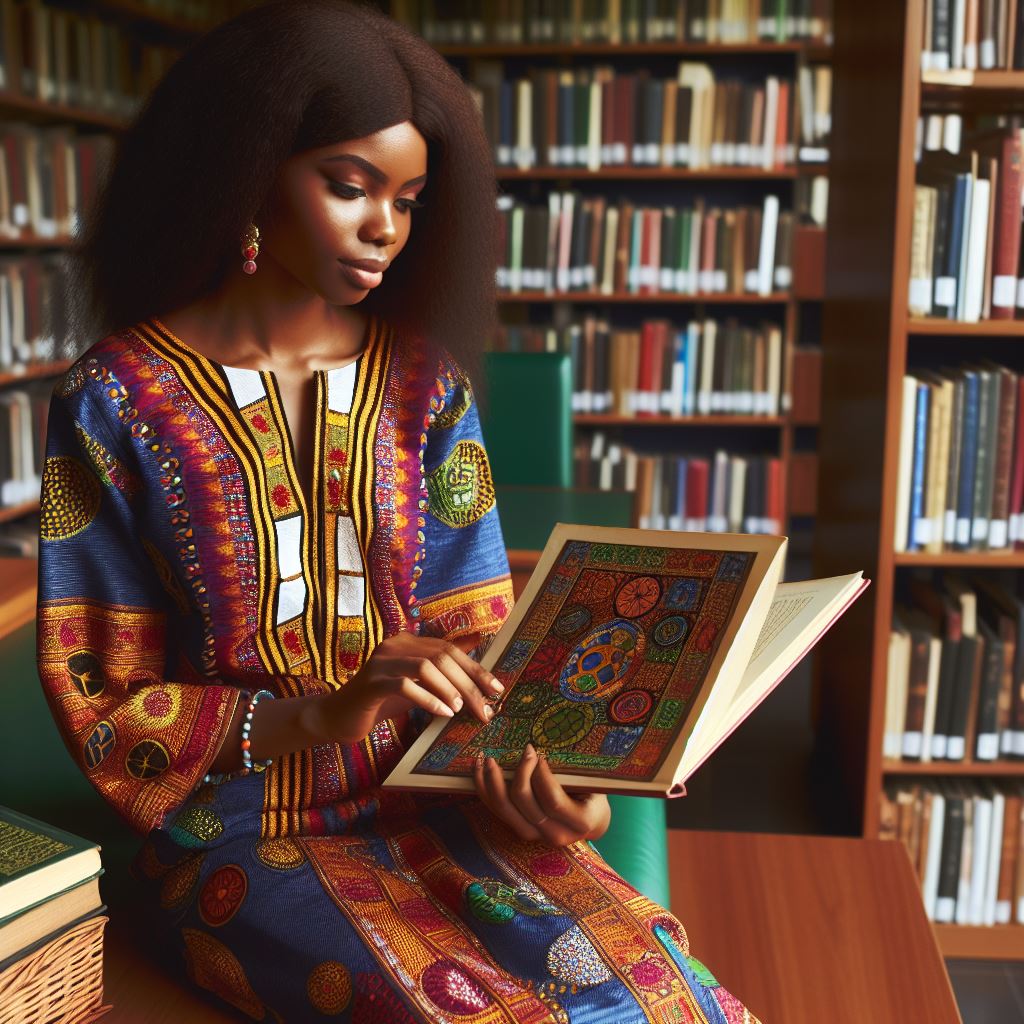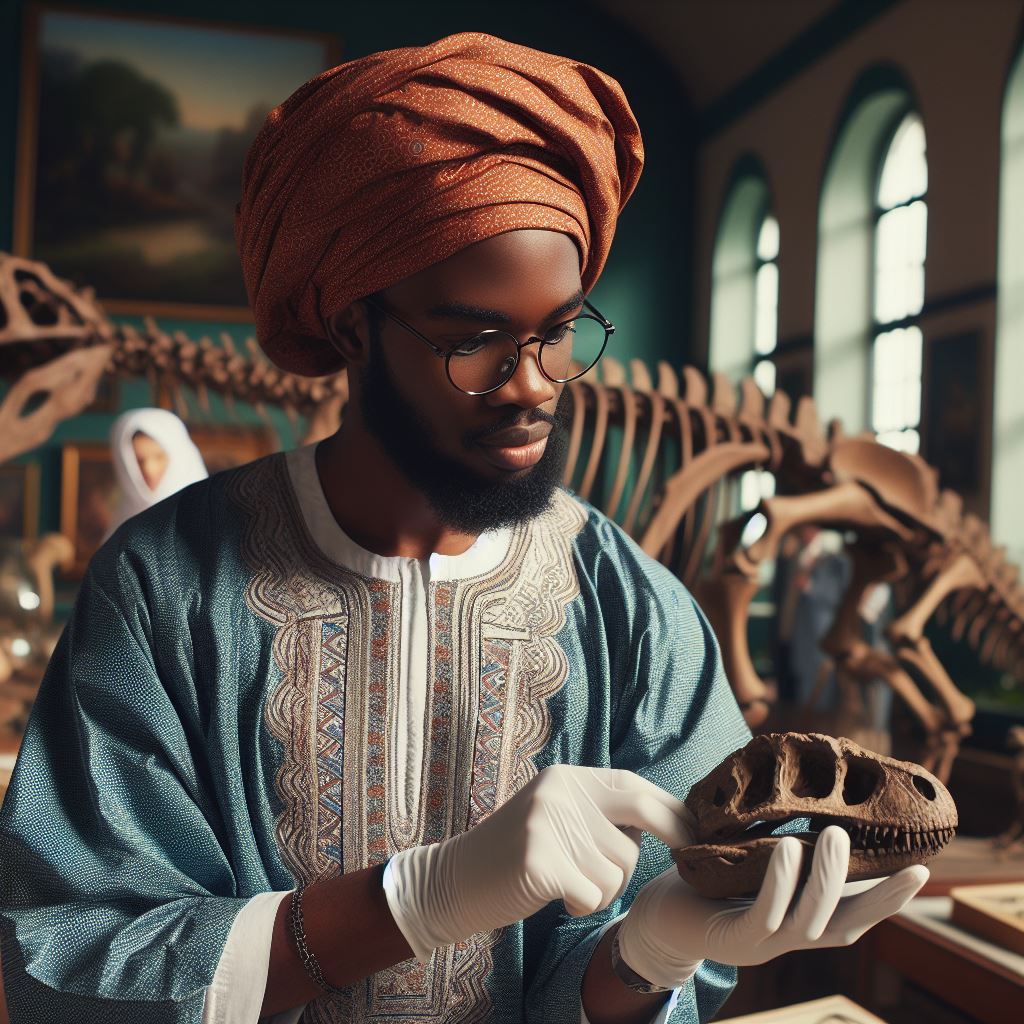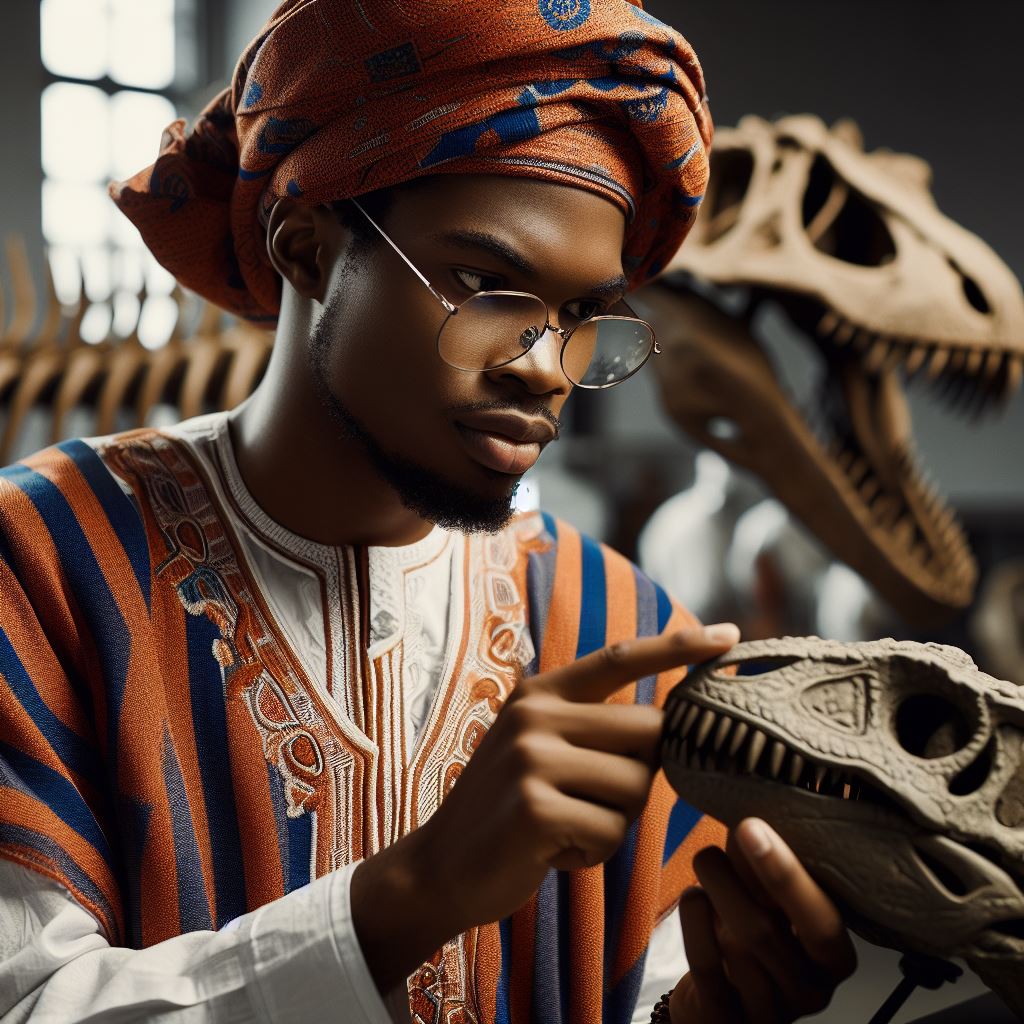Introduction
Anthropology is the study of human societies, cultures, and their development over time. It provides valuable insights into our past and present.
In Nigeria, there is a growing interest in anthropology as people seek to understand the diverse ethnicities, traditions, and histories that make up the country.
The purpose of this blog post is to showcase upcoming conferences and events related to anthropology in Nigeria, providing a platform for scholars, researchers, and enthusiasts to connect and share their knowledge.
Upcoming Conferences
One of the most anticipated events in the field of anthropology is the Annual Conference of the Nigerian Anthropological and Sociological Association (NASA).
This conference brings together professionals and students from various disciplines to discuss key issues in anthropology and explore new research trends.
Workshops and Seminars
In addition to the NASA conference, there are smaller workshops and seminars held throughout the year, focusing on specific topics within anthropology.
These events provide a more intimate setting for in-depth discussions and networking opportunities among participants.
Fieldwork Opportunities
Anthropologists often engage in fieldwork to study different cultures and societies up close. In Nigeria, there are numerous opportunities for fieldwork, ranging from rural communities to urban centers.
These experiences are invaluable for researchers looking to deepen their understanding of Nigerian culture and traditions.
Generally, anthropology plays a crucial role in understanding the complexities of human societies, and Nigeria offers a vibrant landscape for exploring these dynamics through conferences, workshops, and fieldwork opportunities.
Overview of Anthropology Conferences and Events in Nigeria
Anthropology conferences, seminars, workshops, and events are gaining momentum in Nigeria, showcasing the rich cultural diversity and heritage of the country.
These gatherings provide a platform for scholars, researchers, students, and enthusiasts to engage in meaningful discussions, exchange ideas, and enhance their understanding of human societies.
One of the primary significances of these events is the promotion of awareness and knowledge in the field of anthropology.
By bringing together experts and novices alike, these conferences serve as a melting pot of ideas, theories, and practices, contributing to the growth and development of anthropology as a discipline in Nigeria.
The diversity of topics covered at these conferences is truly remarkable.
From traditional beliefs and practices to contemporary social issues, each event delves into different aspects of human culture, shedding light on the complexities and nuances of societies in Nigeria and beyond.
- Exploring the role of women in indigenous communities
- Examining the impact of globalization on local traditions
- Analyzing the dynamics of kinship structures in modern Nigerian families
- Discussing the challenges of preserving cultural heritage in urban centers
- Debating the ethics of conducting anthropological research in sensitive cultural contexts
Moreover, the lineup of speakers at these events is equally diverse.
Renowned anthropologists, sociologists, historians, and cultural experts from Nigeria and abroad grace these conferences, offering their insights, research findings, and practical experiences to the attendees.
Overall, anthropology conferences and events in Nigeria play a crucial role in fostering collaboration, dialogue, and mutual learning among individuals passionate about understanding human behavior, culture, and society in all its forms.
List of Anthropology Conferences and Events in Nigeria
Here are some of the notable anthropology conferences and events happening in Nigeria:
Nigerian Anthropology and Sociology Students Conference (NASSC)
NASSC is an annual gathering that brings together students and young scholars in the fields of anthropology and sociology to present their research papers, discuss current trends, and network with like-minded peers.
International Conference on African Anthropology (ICAA)
ICAA is a prestigious event that attracts scholars, researchers, and practitioners from across Africa and beyond to explore the various dimensions of African culture, identity, and heritage through an anthropological lens.
Workshop on Ethnographic Research Methods
This workshop focuses on equipping participants with practical skills and techniques for conducting ethnographic research in diverse cultural settings. It includes hands-on training, discussions, and fieldwork exercises.
Symposium on Indigenous Knowledge Systems
This symposium examines the traditional knowledge systems, beliefs, and practices of indigenous communities in Nigeria, highlighting their importance in preserving cultural heritage, promoting sustainable development, and fostering intercultural dialogue.
National Conference on Cultural Diversity
Organized by the National Commission for Museums and Monuments, this conference brings together experts, policymakers, and stakeholders to discuss the significance of cultural diversity in shaping national identity, fostering social cohesion, and promoting cultural diplomacy.
These are just a few examples of the vibrant landscape of anthropology conferences and events in Nigeria, each contributing to the advancement of knowledge, understanding, and appreciation of diverse cultural traditions and practices.
Read: Exploring Semiotics in Communication Arts
Key Anthropology Conferences in Nigeria
One of the major anthropology conferences in Nigeria is the Annual Conference of the Anthropological Association of Nigeria (AAN).
This conference typically takes place in different locations across Nigeria, with themes focusing on current issues in anthropology.
The dates for this conference vary from year to year, but it is usually held in the first quarter of the year.
The AAN conference brings together anthropologists, researchers, students, and professionals in the field to share knowledge and network.
Importance of AAN Conference
The AAN conference provides a platform for academics and professionals to present their research findings and engage in scholarly discussions.
It helps to foster collaborations and partnerships among anthropologists in Nigeria and beyond.
The conference also serves as a training ground for young scholars and students to learn from established anthropologists.
By attending this conference, participants can stay updated on the latest trends and developments in the field of anthropology.
International Conference on Anthropology and Ethnography (ICAE)
The ICAE conference is organized by a consortium of universities and research institutions in Nigeria.
It typically focuses on global issues in anthropology and ethnography, with a diverse range of themes and topics.
The conference dates and locations may vary, but it is usually held in the second half of the year.
The ICAE conference attracts participants from all over the world, fostering international collaborations and partnerships.
Importance of ICAE Conference
The ICAE conference provides a platform for researchers and practitioners to exchange ideas and collaborate on interdisciplinary projects.
It offers a forum for discussing critical issues in anthropology and ethnography, contributing to the advancement of the field.
Participants can network with experts in the field, leading to potential research collaborations and publication opportunities.
The conference also helps to raise awareness about cultural diversity and social issues that are relevant to contemporary society.
Overall, anthropology conferences in Nigeria play a crucial role in advancing the field, fostering academic and professional connections, and promoting knowledge exchange.
Transform Your Career with Expert Guidance
Get personalized mentorship consulting that’s tailored to your unique path. Our expert advice is actionable and exclusive.
Get StartedRead: Exploring Semiotics in Communication Arts
Anthropology Events and Workshops
Smaller events, workshops, and seminars play a pivotal role in promoting anthropology in Nigeria.
These intimate gatherings offer a platform for enthusiasts to delve deep into various aspects of anthropology, fostering learning and networking opportunities.
Importance of Smaller Events
Unlike large conferences, smaller events allow for more focused discussions and interactions. Participants can engage in meaningful dialogue, exchange ideas, and build connections within a more intimate setting.
This facilitates a deeper understanding of anthropological concepts and encourages collaboration among scholars, students, and practitioners.
Enhanced Learning Opportunities
Smaller events often feature specialized topics within anthropology, such as cultural anthropology, linguistic anthropology, and biological anthropology.
By honing in on specific areas of interest, attendees can gain in-depth knowledge and insights from experts in the field. Workshops and seminars provide hands-on experiences, allowing participants to apply theoretical concepts to real-world scenarios.
Upcoming Events in Nigeria
Several upcoming events in Nigeria cater to various branches of anthropology. For cultural anthropology enthusiasts, the “Cultural Diversity Symposium” offers a platform to explore the rich cultural tapestry of Nigeria and its impact on society.
Linguistic anthropology aficionados can participate in the “Language and Identity Workshop,” where they can delve into the complexities of language and its role in shaping identity.
Biological anthropology enthusiasts can look forward to the “Human Evolution Conference,” where leading researchers will discuss recent discoveries and advancements in the field.
These events not only showcase the diversity of anthropological studies but also provide opportunities for interdisciplinary collaboration and knowledge exchange.
How to Participate
Individuals interested in attending these events can register online through the respective event websites or contact the organizing committees for more information.
Many events offer options for virtual participation, making it accessible to a broader audience.
Participants may also have the opportunity to present their research findings through paper presentations or poster sessions, further contributing to the academic discourse.
In short, smaller events, workshops, and seminars play a crucial role in promoting anthropology in Nigeria.
By offering focused discussions, specialized topics, and enhanced learning opportunities, these gatherings contribute to the growth and development of anthropology as a discipline.
Interested individuals are encouraged to participate actively in upcoming events to deepen their understanding and contribute to the advancement of anthropological knowledge in Nigeria and beyond.
Read: Developing Critical Thinking in Language Arts

Presenters and Speakers: The Backbone of Anthropology Conferences
Anthropology conferences in Nigeria thrive on the insights shared by distinguished presenters and speakers. Renowned anthropologists, researchers, and scholars form the cornerstone of these events, infusing them with expertise and depth.
Significance of Renowned Speakers
Having eminent figures in anthropology as presenters elevates the discourse to new heights. Their profound knowledge and experience enrich discussions, offering fresh perspectives and deeper understanding.
Notable Speakers in Nigeria
Over the years, Nigeria has hosted esteemed speakers who have left an indelible mark on anthropology conferences. One such luminary is Dr. Ifi Amadiume, whose groundbreaking work on gender and society has shaped scholarly debates.
Dr. Ifi Amadiume: A Trailblazer in Gender Studies
Dr. Amadiume’s presence at Nigerian anthropology conferences has been transformative. Her insights into the complexities of gender dynamics have inspired generations of scholars and ignited crucial conversations.
Another notable figure is Professor Adamu Abubakar
Professor Abubakar’s research on cultural heritage preservation has garnered international acclaim. His presentations at anthropology conferences have underscored the importance of safeguarding Nigeria’s rich cultural tapestry.
Professor Abubakar: Guardian of Cultural Heritage
Through his lectures, Professor Abubakar has emphasized the imperative of preserving indigenous knowledge systems. His advocacy for community-driven conservation efforts has spurred initiatives to protect Nigeria’s cultural heritage.
Learning from the Experts
Engaging with renowned anthropologists and scholars offers unparalleled learning opportunities. Their expertise not only broadens academic horizons but also inspires individuals to delve deeper into anthropological inquiry.
Unraveling Complexities through Expert Insights
The presence of experts in anthropology fosters a dynamic learning environment. Attendees gain invaluable insights into diverse cultures, societal structures, and historical contexts, nurturing a holistic understanding of human behavior.
Beyond the Lecture Hall: Mentorship and Collaboration
Interacting with eminent speakers extends beyond conference presentations. Many scholars have forged lasting mentorship relationships, receiving guidance and support in their academic pursuits.
Dr. Amadiume and Professor Abubakar: Mentors Extraordinaire
Both Dr. Amadiume and Professor Abubakar have actively mentored aspiring anthropologists in Nigeria. Their guidance has empowered countless students to embark on impactful research journeys and contribute meaningfully to the field.
In fact, the presence of renowned anthropologists, researchers, and scholars at anthropology conferences in Nigeria is invaluable.
Their contributions not only enrich academic discourse but also inspire the next generation of anthropologists.
Embracing their expertise is essential for cultivating a vibrant and dynamic scholarly community committed to advancing anthropological knowledge and understanding.
Read: Student Experiences: Life in Communication Arts
Gain More Insights: Anthropology and Environmental Issues in Nigeria
Networking Opportunities at Anthropology Conferences in Nigeria
Anthropology conferences and events in Nigeria offer invaluable networking opportunities for professionals, researchers, and students passionate about the field.
Networking plays a crucial role in enhancing one’s career, fostering collaborations, and staying updated with the latest trends and developments in anthropology.
Building Professional Relationships
Networking at these events allows individuals to connect with like-minded professionals, fostering relationships that can lead to future collaborations, research partnerships, and career opportunities.
Engaging in conversations with fellow attendees can open doors to new perspectives, ideas, and potential projects.
Sharing Knowledge and Insights
Attending anthropology conferences provides a platform for sharing knowledge, experiences, and insights with peers in the field.
Through networking, attendees can learn from each other’s research findings, methodologies, and best practices, enriching their understanding of anthropology and its various subfields.
Access to Resources and Opportunities
Networking at these events offers access to valuable resources, including funding opportunities, research grants, and academic journals.
By connecting with professionals and organizations within the anthropology community, attendees can stay informed about available resources and leverage them to advance their research and career goals.
Tips for Maximizing Networking Experience
- Be Approachable and Engage Actively: Approach networking with an open mind and a willingness to engage in meaningful conversations. Be approachable, initiate discussions, and actively listen to others’ perspectives.
- Prepare Elevator Pitches: Prepare concise elevator pitches introducing yourself, your research interests, and goals. Be ready to articulate your ideas and interests effectively when networking with fellow attendees.
- Attend Networking Events and Workshops: Take advantage of networking events, workshops, and social gatherings organized as part of the conference schedule. These informal settings provide opportunities for casual interactions and relationship building.
- Exchange Contact Information: Exchange contact information with individuals you meet during the conference to stay connected beyond the event. Follow up with a personalized email or LinkedIn message to express your interest in continuing the conversation.
- Follow Up and Nurture Relationships: After the conference, follow up with your new connections to nurture relationships and explore potential collaborations or opportunities. Keep in touch through emails, social media, or professional networking platforms.
In general, networking at anthropology conferences in Nigeria offers numerous benefits, including building professional relationships, sharing knowledge, accessing resources, and discovering opportunities for collaboration and career advancement.
By actively participating in networking activities and implementing the tips provided, attendees can maximize their networking experience and make meaningful connections within the anthropology community.
Read: Communication Arts: Balancing Theory and Practice
See Related Content: Strategic Planning and National Development in Nigeria
Impact of Anthropology Conferences in Nigeria
Anthropology conferences and events in Nigeria play a crucial role in shaping the field of anthropology in the country.
These gatherings provide a platform for anthropologists to exchange ideas, collaborate on research projects, and present their findings to a wider audience.
Contribution to the Advancement of Knowledge
One significant impact of anthropology conferences in Nigeria is the contribution they make to the advancement of knowledge in the field.
Researchers and scholars gather at these conferences to discuss their findings and engage in intellectual debates that push the boundaries of anthropological knowledge.
These events often feature keynote addresses, panel discussions, and paper presentations that address a wide range of topics within anthropology.
This diversity of perspectives helps to enrich the field and stimulate new avenues of research.
Examples of Research and Collaborations
Many groundbreaking research projects and collaborations have emerged from anthropology conferences in Nigeria.
These events provide a space for scholars from different institutions and disciplines to come together and work on shared research interests.
For example, a recent conference on cultural heritage preservation in Nigeria led to the formation of a multidisciplinary research team that is studying ways to protect and promote the country’s rich cultural heritage.
This collaboration would not have been possible without the networking opportunities provided by the conference.
In another instance, a conference focused on gender and sexuality in Nigeria resulted in the publication of a special issue in a prominent anthropology journal.
This special issue brought together diverse perspectives on gender and sexuality in Nigeria and shed new light on this important topic.
In review, anthropology conferences and events in Nigeria have a profound impact on the field of anthropology in the country.
They contribute to the advancement of knowledge, stimulate new research ideas, and facilitate collaborations among scholars. These gatherings are essential for the growth and development of anthropology in Nigeria.
See Related Content: Cultural Influences in Nigerian Film and TV Production
Explore Further: Famous Nigerian Art Collectors and Patrons
Conclusion
Anthropology conferences and events in Nigeria serve as pivotal platforms for knowledge exchange and networking.
These gatherings foster interdisciplinary dialogue, driving innovation and addressing contemporary societal challenges.
By convening scholars, practitioners, and enthusiasts, these events cultivate a vibrant community committed to advancing anthropological research.
Moreover, anthropology conferences play a crucial role in amplifying diverse voices and perspectives within the field.
Through panel discussions, workshops, and presentations, attendees gain valuable insights into cultural dynamics and societal transformations.
These events not only showcase groundbreaking research but also facilitate collaborative partnerships across borders.
Furthermore, anthropology conferences in Nigeria provide a unique opportunity to showcase the rich cultural heritage of the nation.
Participants are immersed in a tapestry of traditions, languages, and customs, fostering mutual understanding and respect.
By embracing cultural diversity, these events contribute to the preservation and celebration of Nigeria’s multicultural identity.
Encouraging Participation: Join the Anthropological Discourse
As we reflect on the significance of anthropology conferences and events in Nigeria, it becomes evident that they are catalysts for positive change.
To fully harness their transformative potential, active participation is essential.
Whether you are a seasoned researcher or a curious observer, your presence adds value to the dialogue.
By attending these gatherings, you contribute to the collective pursuit of knowledge and enlightenment.
Moreover, your engagement fosters inclusivity and promotes a culture of openness and collaboration.
Together, we can shape the future of anthropology in Nigeria and beyond.
Promoting Awareness: Bridging Cultures, Inspiring Minds
Anthropology conferences and events serve as beacons of enlightenment, illuminating pathways to cross-cultural understanding and appreciation.
Through engaging discussions and immersive experiences, these platforms break down barriers and foster empathy.
By promoting awareness of diverse cultural practices and belief systems, anthropology conferences inspire respect and tolerance.
Furthermore, these events play a pivotal role in shaping public discourse and policymaking.
By highlighting the interconnectedness of global societies, anthropology conferences encourage solidarity and cooperation.
In closing, the significance of anthropology conferences and events in Nigeria cannot be overstated.
They serve as vital conduits for knowledge dissemination, cultural exchange, and societal transformation.
As we look towards the future, let us embrace the opportunity to participate actively in these enriching experiences.
Together, we can build a more inclusive and harmonious society, grounded in the principles of mutual respect and understanding.




